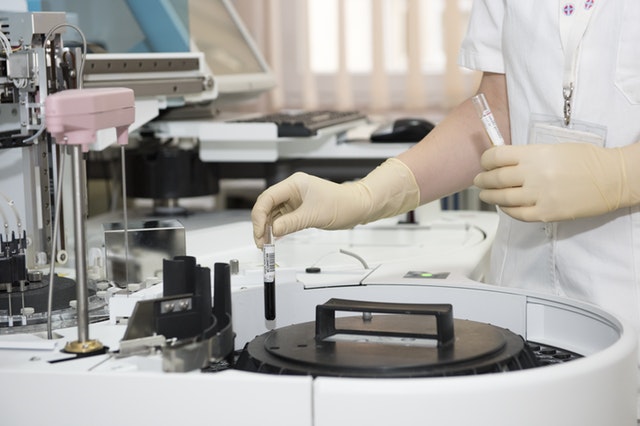Researchers Gather Health Data For 'All Of Us'
By Richard Harris,
NPR
| 12. 31. 2017
Federal taxpayers are pouring hundreds of millions of dollars into a quest for blood samples, medical information and fitness readouts from a million Americans. It's called the All of Us precision medicine initiative, and it's the biggest push ever mounted to create a huge public pool of data that scientists — and anybody else who is interested — can mine for clues about health and disease.
Proponents say this big data approach to medicine will be revolutionary. Critics aren't so sure.
The plan is to recruit a million Americans to sign up for a program that will not only gather all sorts of medical data about them but will also follow them for at least a decade, possibly much longer. Their electronic medical records could end up in huge databases. The physical samples of blood and urine will end up in an industrial park in Rochester, Minn.
Mine Cicek, an assistant professor of laboratory medicine and pathology at the Mayo Clinic, leads me into a vast building with more than an acre and a half of floor space. "This...
Related Articles
By Scott Solomon, The MIT Press Reader | 02.12.2026
Chris Mason is a man in a hurry.
“Sometimes walking from the subway to the lab takes too long, so I’ll start running,” he told me over breakfast at a bistro near his home in Brooklyn on a crisp...
By Katrina Miller, The New York TImes | 02.05.2026
Joseph Yracheta: The Native Biodata Consortium is the first nonprofit data and sample repository within the geographic bounds and legal jurisdiction of an American Indian nation, on the Cheyenne River Sioux Reservation in Eagle Butte, S.D.
NativeBio participated in a ...
By David Jensen, California Stem Cell Report | 02.10.2026
Touchy issues involving accusations that California’s $12 billion gene and stem cell research agency is pushing aside “good science” in favor of new priorities and preferences will be aired again in late March at a public meeting in Sacramento.
The...
By Lauren Hammer Breslow and Vanessa Smith, Bill of Health | 01.28.2026
On Jan. 24, 2026, the New York Times reported that DNA sequences contributed by children and families to support a federal effort to understand adolescent brain development were later co-opted by other researchers and used to publish “race science”...




